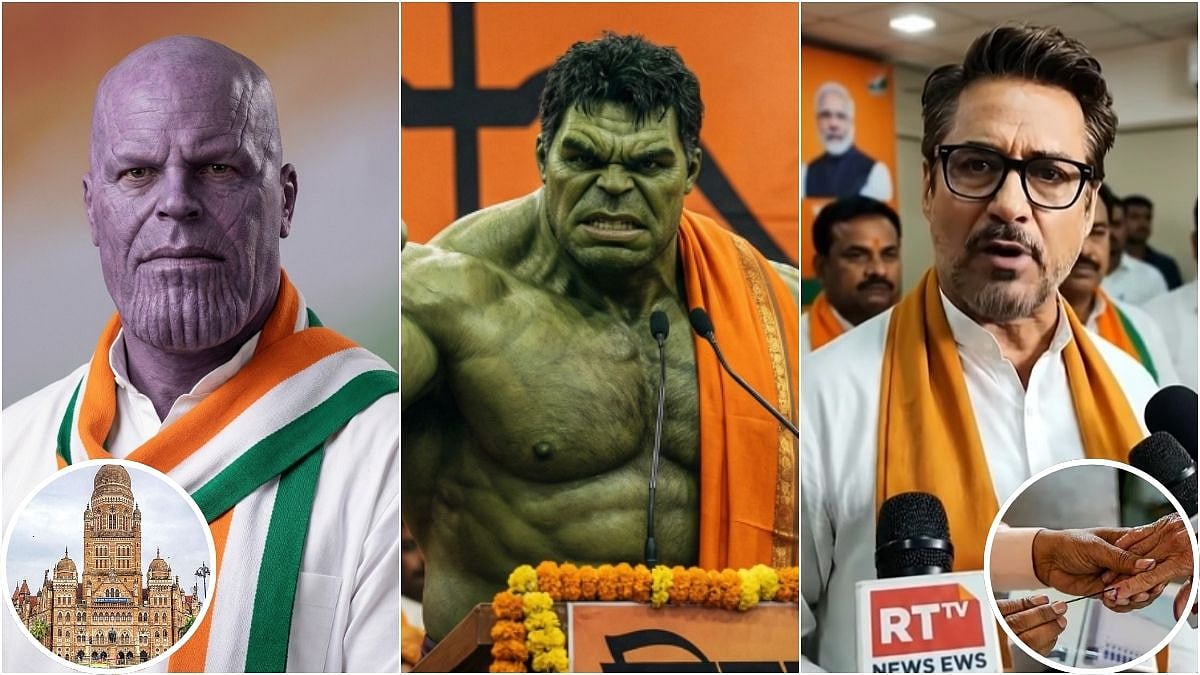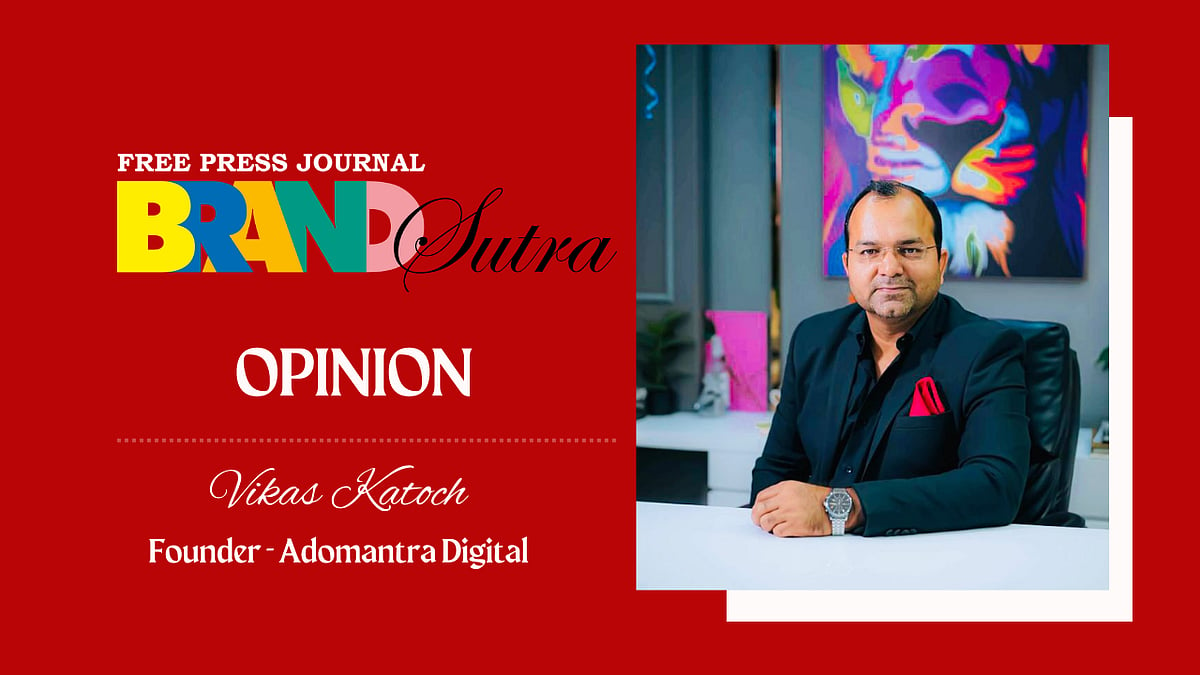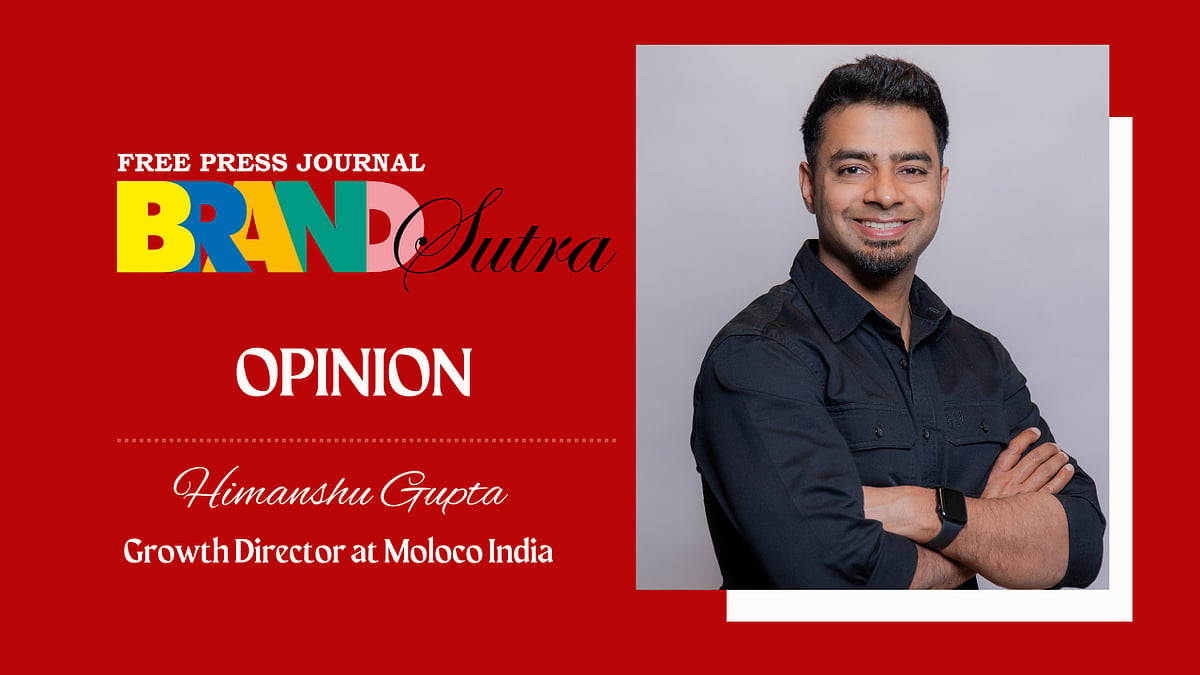When public-listed company Veranda Learning Solutions announced its acquisition of majority stake (76 pc) in JK Shah Classes in November 2022 for Rs.337 crore, there was an important message it sent out: It stated upfront that Professor JK Shah will continue to remain as Chairman for Life and will guide the growth and strategy.
Less than a year in, JK Shah Classes’ legacy and expertise are being leveraged in what FMCG marketers would call adjacencies. The nearly four-decade-old brand’s leadership that Veranda invested in is still very much in place. JK Shah joined the likes of Bengaluru-based firm Edureka that Veranda acquired for Rs.245 cr a year earlier, and Chennai Race Coaching Institute (now Veranda Race) for Rs.100 cr in December 2020.
While the primarily offline JK Shah is gearing up to go offline, the reverse is at work for Edureka, which now has 50 physical IT skilling centres.
In May 2023, Veranda, which went public a year earlier, announced deals to acquire seven companies in related spaces for Rs.400 cr. The process of identifying and acquiring companies is ongoing, including tuck-in acquisitions that align with existing brands in the fold.
The game is not entirely new for Suresh Kalpathi of Kalpathi Group, which launched Veranda Learning Solutions.
The ED and Chairman of Veranda Learning Solutions had set up IT and IT training firm SSI in the 1990s, which went on to acquire Aptech. This time around, the context in the space of education is different, and so is the game. He lends perspective in a freewheeling chat on a subject he is deeply passionate about – creating value by catering to need gaps in education.
The acquisitions seem to be in different spaces. Is there a roadmap? What’s the strategy?
What you see as fairly disparate acquisitions that we are doing, are filling some part of a larger grid.
Acquiring a company is not so simple. There are people involved, there are promoters involved. But at a price, there are many you can buy. And buying does not create value. Buying just changes the name at the cap table. The success of an acquisition is what we call internally as ‘Enable, Accelerate and Empower’. You need to understand the ethos of a business owner.
All the businesses we are buying are first generation entrepreneurs, very much by design. In my view, that’s when the passion and hunger to achieve is highest. These are businesses they have founded. When we step in, it also gives them a chance to blossom. We provide the wrapper and the framework. They get an exit. We don’t buy 100 pc – we buy anywhere between 51 to 76 pc and the balance is still with them. They have an ability to build value on the residual stake, in an environment where they have suddenly found relief; their nest egg is safely in place. Most of them have built it over a long time and they see some safety there. And they come into a very enabling environment.
Many of the businesses we have acquired are growing at 100 pc after the acquisition. The value gets built there. If I buy a business at a 10x profit multiple and within 12 months their profit doubles, then I have effectively bought it at 5x. If we can keep that momentum up, then it goes down further. That creates value because these businesses, at that speed of growth, are valued more by the markets.
Creating with that energy, that momentum, that enthusiasm of the founder to continue to build it bigger and faster – that is the key to building a business through acquisitions. We have been in the business for the last 30 years and I understand this being a first-time entrepreneur myself. A lot of them warm up to us for no other reason except that they see in us a kindred soul. That significantly helps.
We continue to make acquisitions because the grid is not complete.
This growth that you claim – how is it being catalysed?
One of the things we do is enlarge and expand the horizon, but in a very logical form. We would never expect a JK Shah, which is predominantly into CA coaching, to do IAS coaching. But we look at it going beyond CA into say Cost Accountancy, Company Secretaryship, CPA, CMA and so on across finance-related products, and even some forms of conventional education. We are bidding to run the entire commerce departments of some colleges. That is still in line with the strength of the brand. If I can teach CA, why can’t I teach B.Com.? But we know fully well that it can’t be an unconnected diversification.
We also ensure that they become hybrid. If you take the case of JK Shah, they are predominantly offline. We are going to take JK Shah online. That is going to be a significant play for us because the brand strength is in place, the testimonials are in place. We’re just going to provide one more channel that our customers can access. In contrast to that, Edureka, which is into software skilling, was pure play online until we acquired them. Now we have over 50 locations running offline centres.
In the case of JK Shah a lot of the focus is on Maharashtra, some parts of Gujarat. We are now expanding them significantly through what I call tuck-in acquisitions. There are multiple conversations going on in many states. In some of the cases we are in the diligence stage.
We have a way of managing these assets. We don’t put in our accounts, finance, HR (and other) guys and take control. Because in my view, we are just not buying a business. We are buying into the process, the people, their legacy and pedigree they have built – which means I love the way he has built it. If that is truly the case, why would I go and dismantle it? Why acquire something that you think will not work for you?
We also look at cross-leveraging the talent. Apart from the promoters, who reach safe harbour in some sense, we are also looking at how the team members can get greater opportunities for advancement, enlarge their scope of work, with more responsibilities, more excitement and also stock options to tangibly create wealth. If one thought one can rise up to senior management in one entity that we bought, we are saying there are five more layers on top that you can grow into.
There are emerging areas of growth. Institutes are signing up with foreign partners to offer courses or part of courses. In areas like commerce for example, there is a lot of work that will come into India because of cost advantage and proven talent. Modules of a foreign certification required to handle international accounting are bundled into courses here, to place students in such jobs. That is going to be big. For the guys offshoring work, it costs significantly less. For these kids, who thought only software guys start with Rs.35,000 or 40,000 a month, they will start with (maybe) Rs.50,000 a month.
One gets the fitment and finding first generation entrepreneurs with passion. They also need to stay on for a certain time for the transition and synergies to work. How does this play out?
Typically it’s three to five years. All the businesses we have acquired are very much on similar lines. Let’s take JK Shah for instance. The exit is at three years for the balance 24 pc stake. His children are the Co-COOs of the company. JK Shah continues to be the Executive Chairman of JK Shah Classes – not us. We have two independent directors on his board. All day to day operations report into JK Shah. The finance guy he had, continues to be there, his HR guys are all the same. The only thing we sensitise them to is that now that they are part of Veranda, a listed vehicle, they become deemed public and there is a requirement of certain regulatory compliances, disclosures and so on. We tighten things up a bit on the legal side.
While in three years he can sell the remaining 24 pc, I tell him that the excitement is only beginning. That the balance 24 pc will be much, much more valuable than your 76 pc (when sold) by the time you exit. The way we are growing, he will see it in the first 12 months itself – which he has already realised.
How do you see the larger grid that you spoke about?
One part of the grid is the formal, academic education. It’s from K-12 to college. Then you have test prep – coaching for professional qualification like CA, NEET, JEE, including state and central government tests. Then you have upskilling, which includes software, which is large in India, but also upskilling to become a mutual fund manager, and so on.
How big do you see each part of the grid growing to?
To its potential. If I look at software training, which happens under the brand of Edureka, we will continue to look at expanding it to the size that it can grow to. We will continue to look for tuck-ins that we can do. In commerce, we are aggressively expanding.
K-12 has a massive demand, because that is also the place where you skill students up. The government is wanting to bring a lot of new age learning. They have announced Atal Tinkering Labs but if you go into a secondary town, they haven’t heard of it – they are still doing what they have been doing.
My view is that by the time these kids get into the workplaces say 10 to 15 years from now, they are going to come into a very different place. We are already seeing the changes, some acknowledged and some we don’t have the time to pause and think about. In the last six months, AI has advanced almost on a daily basis at an incredible speed. Look at how EVs, drones and space technology have moved in the last three to four years.
There is a company I have mentored as part of the IIT incubation cell. They will be sending their first satellites early next year. These guys will be 26 or 27 years old. Lots of enabling regulations are being made. There is the India story, in terms of demographics, GDP growth, investment coming in. A lot of these changes are coming with significant momentum and speed. In 10 years, the kids who don’t have a lot of those skills will be left behind.
So the K-12 that we see, apart from the normal education, we will have all of this being covered from the first standard onwards – kids will learn space technology in the first standard. Those are the kids who will be needed 10 to 12 years from now. This is par for the course, because we won’t be talking about internal combustion engines 10 years from now. A second standard kid should be asking if she can use ChatGPT for her homework, just like how she plays games. If we can get these kids to speed, imagine where they will be when they finish graduation.
There is so much that has to be done and this has to be powered by entrepreneurial momentum. That’s the only thing that will make it happen at speed. While we have a presence in K-12, we are doing a lot of tuck-ins, which are into areas like space tech and drones, and we will integrate that into the curriculum. When kids join any of the schools we are servicing, this will start from the first standard. We will also be looking at providing services to colleges.
Will your forthcoming acquisitions be aligned with the companies already in the fold?
Our commitment to the founders of companies we acquire is that we will never dump them for something bigger that comes our way. Tomorrow, even if we find something that’s double the size in commerce education, it will be tucked into JK Shah. It can only make JK Shah bigger. The same goes for Edureka in software skilling.
Edtech companies have not been in the news for the right reasons. A news report today says you have appointed bankers to raise funds...
We are not an edtech company. We are an education company that uses technology.
Some of the edtech companies played it up. My understanding is, without pointing fingers at anyone… They are all creatures who are made by the environment. There were a bunch of people who were doing offline businesses, good businesses. The pandemic came. There was a screaming push to survive. So Zoom classes, live online classes, all of that happened. We thought things would return to normal soon but they didn’t. So online started penetrating at a much more aggressive pace everywhere because there was no other way to survive. Online became all-pervasive and education was no different. People saw massive growth only because offline was shut. Offline was far bigger than online, but a large part of that offline audience came online because they did not want to be left behind.
People started believing that this is an industry growing at rocket speed. The equity guys started coming in, FOMO kicked in and people were chasing valuation. A bunch of new kids also got in. They were backed by tonnes of money and were told to chase market share. They grew GMVs and made huge losses. People told them to double sales and assured them of the next cheque. They went after market share. Some started believing that they had the Midas touch because of the valuations. They went about buying businesses.
All of this resulted in the situation they find themselves in. It was because they moved away from basic business principles. Business has to make money. Things just moved so far away from the basic principles of business and value.
When I did my first issue for Software Solutions (SSI), I was in Ahmedabad on an IPO roadshow. I came from Chennai, was from IIT and seemed to tick all the boxes for a technology business. We were doing an issue at par, which was unheard of for a four-year-old technology company. I was presenting in English. A banker was taking orders. A gentleman came and asked me some questions in Hindi but I did not understand much of it. He understood my issue and asked me, ‘Sureshji, software?’ I said, ‘Yes, software’. He gave his order. The mindset was ‘Software - Put money’. This time it became ‘Tech (edtech / healthtech et al) - Put money’. It’s the same thing, except this was no trader from Ahmedabad, this was all the Softbanks and Tigers and KKRs and Blackstones who were punting with huge cheques.
You have mentioned in the past that the acquisitions you look for should also be profitable. Is that a prerequisite?
We look for two things. One is pedigree. Customers have to say that the company is damn good. And it has to be profitable.
We also look for synergies. One of the businesses we recently acquired provides services to colleges. They are present in 300 colleges across states and train over a 100,000 people a year. They provide placement-related services. They are very profitable by themselves and have a clear growth plan.
Kids coming out of their final year of college are also prospective clients for many of our other businesses, whether it is to clear the State Public Service Commission, a banking job exam, IAS or something else. In this space, a good, qualified lead will cost between Rs.200 to Rs.250, for a programme of say Rs.15,000. These are qualified leads and these are my own students. If we have done a good job, they will feel comfortable moving into another product within the Veranda ecosystem.
That said, in an acquisition the synergy benefits are secondary. It needs to have a primary reason to exist.
What is the investor sentiment right now, specific to the sector?
Honestly, last year was not the best of years. We did the IPO, we made some acquisitions, but there were a lot of things planned that didn’t happen for reasons related to the environment beyond our control. We closed a few acquisitions. We acquired JK Shah by raising debt.
This year, we are showing the results of what we can do with acquisitions. Anybody can acquire if they have the money. We turned EBIDTA positive with Rs.5.64 cr for the first time in Q1 2024. And we are targeting EBIDTA of Rs.100 cr in FY 23-24.
When we acquired RACE in end-2020, they were doing Rs.40 lakhs a month. Today, South of the Vindhyas, we are the biggest. We bought businesses in Kerala, and AP & Telangana, and tucked it into them. I set a sizeable target, which they did not believe they would meet. Today it looks like they will cross that target. It’s about enabling them to realise those targets.
This is not just about acquiring for us. This is about creating tremendous value on acquisitions. The turnaround one is seeing is a demonstration of that. We recently announced a set of acquisitions and people will see the impact of those next year. What this has also meant is that increasingly more companies are comfortable talking to us.
(With inputs from Santosh Govindarajan.)
MN4U Syndicate.
Feedback: fpjbrandsutra@gmail.com









